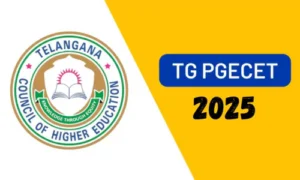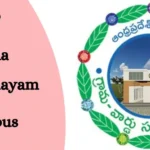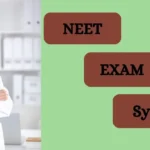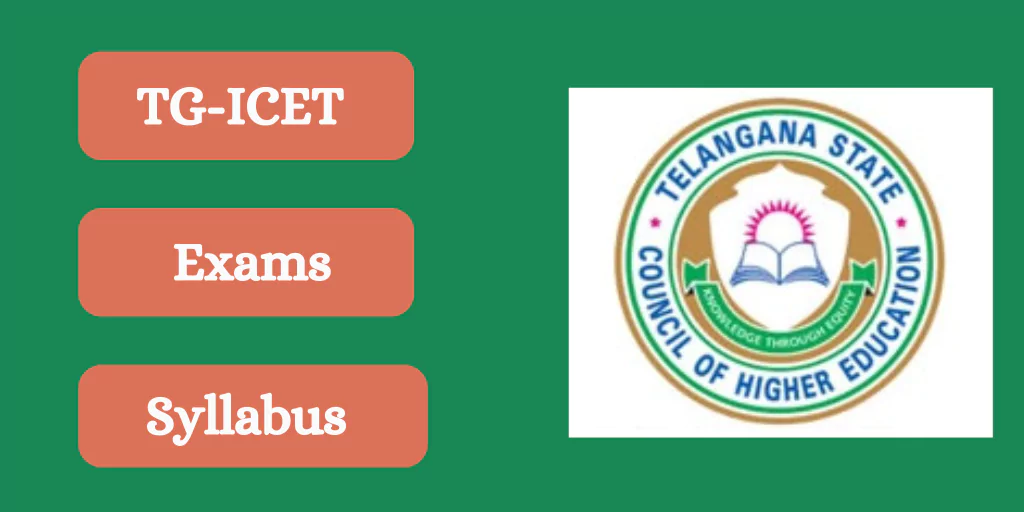Recently updated on May 27th, 2025 at 10:05 am
The TS PGECET (Telangana State Postgraduate Engineering Common Entrance Test) is an entrance test for postgraduate engineering programs offered by Telangana’s universities and institutions. The syllabus for TS PGECET differs according to the engineering subject you are applying for. The following is a detailed overview of the general syllabus categories and topics for the TS PGECET. Candidates need to ensure they meet all eligibility criteria before applying for the examination.
1. General Engineering (Common to All Specialisations)

Mathematics
1. Algebra
- Matrices and Determinants
- Complex Numbers
- Quadratic Equations
- Permutations and Combinations
- Probability and Statistics
2. Calculus
- Limits and Continuity
- Differentiation
- Integration
- Differential Equations
- Application of Derivatives and Integrals
3. Coordinate Geometry
- Straight Line
- Conic Sections (Circle, Parabola, Ellipse, Hyperbola)
4. Vectors
- Vector Algebra
- Scalar and Vector Products
- Applications in Geometry
Engineering Mathematics
1. Probability and Statistics
- Probability Distributions
- Measures of Central Tendency and Dispersion
2. Linear Algebra
- Vector Spaces
- Eigenvalues and Eigenvectors
- Linear Transformations
3. Numerical Methods
- Numerical Solutions of Algebraic and Transcendental Equations
- Numerical Integration and Differentiation
2. Discipline-Specific Topics
For each specific engineering branch, the syllabus will include core topics relevant to that discipline. Here are some examples of popular engineering specialisations and their key topics:
Civil Engineering
1. Structural Analysis
- Analysis of Determinate and Indeterminate Structures
- Influence Lines
- Structural Dynamics
2. Design of Structures
- Steel Structures
- Concrete Structures
- Foundations
3. Geotechnical Engineering
- Soil Mechanics
- Foundation Engineering
4. Environmental Engineering
- Water Supply and Treatment
- Wastewater Engineering
Electrical Engineering
1. Circuit Theory
- Network Theorems
- Transient Analysis
- AC and DC Circuits
2. Control Systems
- System Dynamics
- Control Strategies
- Stability Analysis
3. Electronics
- Analogue and Digital Electronics
- Signal Processing
4. Electrical Machines
- Transformers
- Motors and Generators
Mechanical Engineering
1. Thermodynamics
- Laws of Thermodynamics
- Heat Transfer
- Refrigeration and Air Conditioning
2. Fluid Mechanics
- Fluid Properties
- Fluid Dynamics
- Applications of Fluid Mechanics
3. Strength of Materials
- Stress and Strain
- Bending and Shear Stresses
4. Manufacturing Processes
- Casting, Machining, and Forming Processes
Computer Science and Engineering

1. Algorithms and Data Structures
- Sorting and Searching Algorithms
- Data Structures (Arrays, Linked Lists, Trees, Graphs)
2. Computer Networks
- Network Models
- Protocols and Standards
3. Operating Systems
- Processes and Threads
- Memory Management
4. Database Management Systems
- SQL
- Database Design
3. General Aptitude (Common to All Specialisations)
1. Analytical Ability
- Data Interpretation
- Logical Reasoning
2. Mathematical Ability
- Basic Arithmetic
- Algebra
- Geometry and Trigonometry
3. Communication Skills
- English Language Proficiency
- Vocabulary and Grammar
Preparation Tips
- Understand the Syllabus: Ensure you are familiar with the detailed syllabus for your specific engineering branch.
- Study Previous Papers: Reviewing past question papers can help you understand the exam pattern and types of questions.
- Practice Regularly: Regular practice of mathematical problems and technical questions is crucial.
- Use Standard Textbooks: Refer to standard textbooks and reference materials for in-depth study.
- Take Mock Tests: Regular mock tests can help you gauge your preparation level and improve your time management skills.
Be sure to check the official TS PGECET website or notification for the most accurate and updated syllabus and any additional information related to the exam.
Conclusion:
In conclusion, a solid comprehension of the TS PGECET syllabus is essential for success in this competitive exam. You can strengthen your preparation by studying fundamental topics in Mathematics, General Engineering, and your specific engineering discipline. To increase your performance, focus on grasping essential ideas, practice prior papers, and utilise effective study tactics. Stay up to date on any syllabus changes and make the most of the tools available to you. With careful preparation and a smart strategy, you can comfortably navigate the exam and progress toward your postgraduate aspirations.






